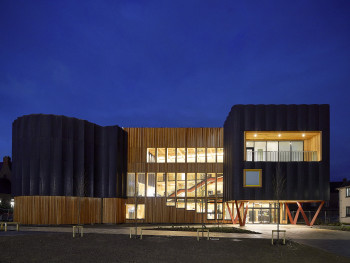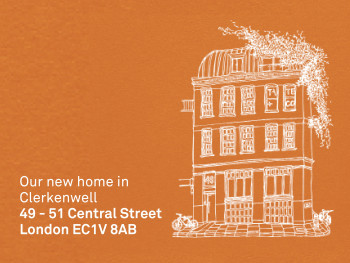Why is Sustainability boring?
Recently I was talking to a (non-architectural) friend about the state of architecture and he said ‘surely things will get better for architects now that sustainability is coming back into fashion?’ Whilst I nodded this off sagely at the time the comment did take me by surprise. All practising architects are so aware of the issues associated with sustainability that we often assume the rest of the world is on the same page as us, when in fact much of the world may believe it has other more pressing concerns right now.
So at the risk of sounding heretical I would like to ask whether the general public are tiring of sustainability?
Michael Pawlyn of Exploration Architects, in his excellent talks on Biomimicry, often questions the use of the word ‘sustainability’ to describe our future way of living. He points out that if someone asked you how your marriage/relationship was going, when you said it was ‘sustainable’ it would certainly seem like something was missing! Yet an emotional attachment to the future is part of an architect’s function, it is our job to show what could be achieved and how we can get there. We need a new way to describe an exciting beautiful future when we no longer live in opposition to the natural systems of the world.
A large proportion of our work is designing, detailing and project managing new-build low-energy houses for clients. Recently, we have stopped talking to clients about ‘sustainability’ in general and have instead started to concentrate on specific outcomes. For example everyone wants lower energy bills, no-one believes that prices are going to go down, and with feed in tariffs uncertain in a year’s time, it is an obvious choice to reduce energy consumption. Luckily tools like the Passivhaus Planning Package mean that even if a client is not able to commit to a Passivhaus certified design, we can accurately predict what their energy consumption is going to be (much more precisely than the current SAP methods). Similarly, everyone is concerned about water shortages and many of our new-build house clients are coincidentally very keen gardeners/ vegetable patch owners who are fearful of hosepipe bans. We can now use tools such as the water calculator from the Code for Sustainable Homes to discuss how a rainwater harvesting system can help them save water and maintain a greywater supply in times of potential shortage. By discussing sustainability less and concentrating on specific outcomes, more it is possible to generate more convincing arguments for the right course of action.
However if we think the issue is purely that of functionality we risk being trapped in a banally reductive world. Without a vision architects become no more than technicians, and it is the ability to shape functional requirements to create a piece of ‘magic’ which is vital to the future of our profession. Reading Peter Buchanan’s series of essays recently in the Architecture Review about the state of architecture, there seemed to be clear parallels between his perception of the crisis in architecture and the death throes of functional modernism in the seventies. In truth the seventies generated such a variety of alternative approaches to building design which became ‘movements’ as varied as post-modernism, high-tech or deconstructivism, that the main summary of the era would be as the birth of pluralism. I genuinely hope that our response as a profession to the crisis of our species environmental impact is similarly eclectic in its response, and instead of being reductive instead opens up a plethora of alternative and visionary futures for architectural design.
The truth is that there are a huge number of ways to make a ‘sustainable’ (if that is what we are going to call it) environment. The trick as a profession is not to be reductive in how we express this. For example, as a practice we really enjoy using nature as an inspirational tool, but this is just one of many different approaches. We need a new word for making our world function better, and a new suite of visions to go with it.



